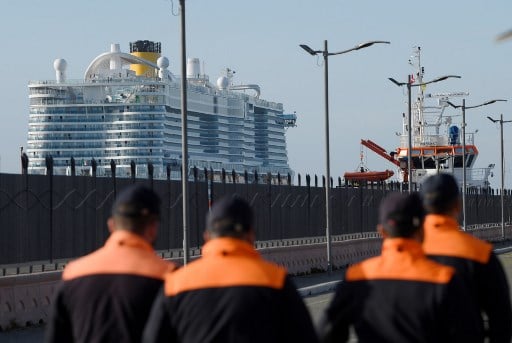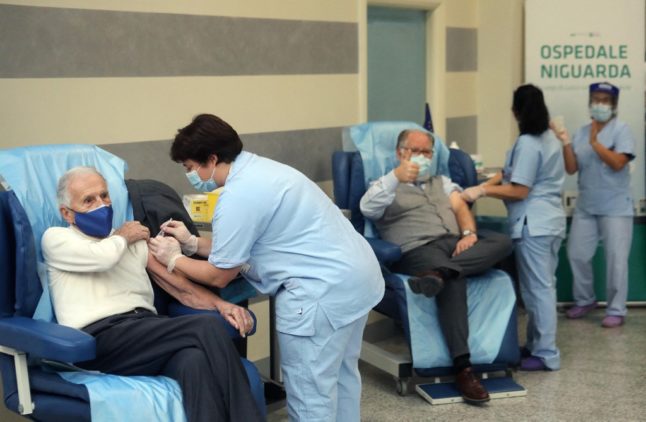The vast liner was placed on lockdown while two people were tested for the deadly coronavirus.
Samples from the two passengers, a Chinese couple, were sent for testing after three doctors and a nurse boarded the Costa Crociere ship in the port of Civitavecchia, north-west of Rome, to tend to a woman running a fever, local health authorities said.
READ ALSO:
Costa Crociere confirmed that its Costa Smerelda ship, carrying some 7,000 people including the crew, was on lockdown.
It said it a 54-year old woman from Macau “was placed in solitary confinement in the on-board hospital last night with her travel companion”, and was following instructions from the health ministry.
The Costa Smeralda, the company's flagship and the fifth-largest cruise ship in the world, “came from Palma de Mallorca and is currently engaged in one-week cruises in the western Mediterranean,” it said.

The Costa Smerelda is the fifth-largest cruise ship in the world. File photo: Costa Press Office
It had been due to sail for La Spezia in north Italy late Thursday, but would be detained in the Civitavecchia port near Rome “until we have an update on the health tests,” said port captain Vincenzo Leone.
The couple flew in to Milan from Hong Kong on January 25, before getting on the cruise, according to Italian media reports.
One Italian passenger who said he was on board the ship near Civitavecchia tweeted at midday on Thursday: “We're blocked on board the Costa ship without knowing the (official) reason.”
Intanto a Civitavecchia siamo bloccati in nave Costa senza sapere il motivo ( ufficialmente).. pic.twitter.com/dijqwKaQxj
— Filippo?? (@Filippo64416163) January 30, 2020
“The couple's cabin has been isolated and they are in with the doctors,” an unnamed passenger was quoted as telling ANSA news agency.
“We're a bit worried of course. No-one is getting on or off the ship apart from the doctors. This holiday risks ending in a nightmare”.
Silvio Brusaferro, president of the Italian national health institute, said that all suspected cases in Italy so far had turned out to be false alarms, but the health service was “ready should any cases of infection emerge”.
China reported its biggest single-day jump in novel coronavirus deaths on Thursday, as global fears deepened with at least 15 countries confirming infections.
The World Health Organization, which initially downplayed a disease that has now killed 170 in China, was preparing to meet Thursday to decide whether to declare it a global emergency.



 Please whitelist us to continue reading.
Please whitelist us to continue reading.
Member comments